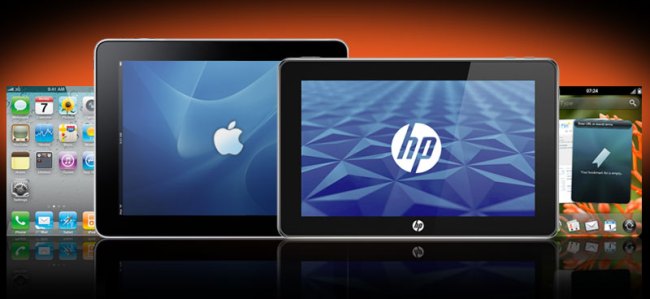
Last week was an Apple launch week, and short of the launch of World War III, there were likely few things that could pull much interest away from this event. Still, HP chose the week to launch WebOS 2.0 in advance of what will is expected to be a line of products that will actually dent Apple’s dominance in the tablet and smartphone space. But hasn’t that boat already sailed, you ask? Can anyone really slow down Apple? And if someone was going to do it, wouldn’t it more likely be a vastly more consumer-oriented company like Sony or Panasonic, than a firm that started out making calculators and test equipment?

Where the Apple platform is weak
Apple leads with a strong media core, and the company is likely to remain that way when it comes to media. However it fumbles with two things: partnering, and integration with third-party products. This has made the iPhone kind of a joke, because it sucks at being a phone, and with PDA functionality, at least when it comes to connecting to non-Apple e-mail and calendaring services. HP is actually rather good at both partnering and integration. It has to be, as the leader in PCs and servers, and HP teams have to work closely with companies like VMware and Microsoft in order to complete their solutions.
This means that HP won’t be as religious about going to war with Adobe and Flash, it will better integrate with Microsoft Exchange, and it will work more closely with more carriers. That means HP may even be better with Apple’s core partner, AT&T, but certainly will emerge rapidly on Verizon and Sprint possibly T-Mobile.
Better competitor to RIM?
If you look at HP’s mix of advantages, it may initially be a better alternative to RIM than to Apple, because WebOS will be stronger on the business side than on the consumer side. However what we often forget is that HP is actually the leader in workstations used for content creation, and firms like DreamWorks use them almost exclusively. This suggests that future content could be more easily designed for the WebOS platform, and that special relationships between the content owners and HP may be easier to create than they are with Apple.
So while RIM may initially be the better target, eventually HP actually has some media advantages that could come into play and that could define the coming battle.
2011
This won’t mean much to us until the second half of 2011, and until then, the market likely be defined by Apple, Google and RIM. However, both Google and RIM are having difficulties. The very nice Blackberry Torch is underselling expectations as a result of poor performance by its parent, and being pounded by countries that want to breach its security. Google is being sued by both Oracle and Microsoft founder Paul Allen for stealing their stuff, suggesting that by the end of next year there could be a huge opportunity for a new number two, and HP plans to fill that slot.
HP could, but will it?
Companies in this space, from Microsoft to HP, are plagued with the “what could have been” mantra of mistakes and missteps. HP could have been a contender for the iPod market, but a naïve move by its then-CEO Carly Fiorina killed that effort. Microsoft had a shot with the Zune, and pissed it away with ugly hardware followed by lackluster marketing. Palm, with the Palm Pre, had the strongest opportunity, but its execution was so poor it went from star to bum in a few short months, while wasting millions of investor dollars. Apple seems blessed by competitors who excel at excuses more than they excel in execution, and HP has been on that list in the past.
A lot hinges on this for HP. With this one offering, the company will show the world whether it’s up to the competing, or wasting investor dollars chasing a goal it’s unwilling to go far enough to achieve. This will define HP’s new CEO, and Todd Bradley (the executive championing this effort in HP), who will both be branded as heroes or fools based on the outcome. The fact that there is so much riding on this makes the WebOS 2.0 worth caring about.
Editors' Recommendations
- HP Envy x360 13 vs. Apple MacBook Air M2
- After testing AMD FSR 2.0, I’m almost ready to ditch DLSS
- FSR 2.0 is the complete reboot AMD’s upscaling needed


